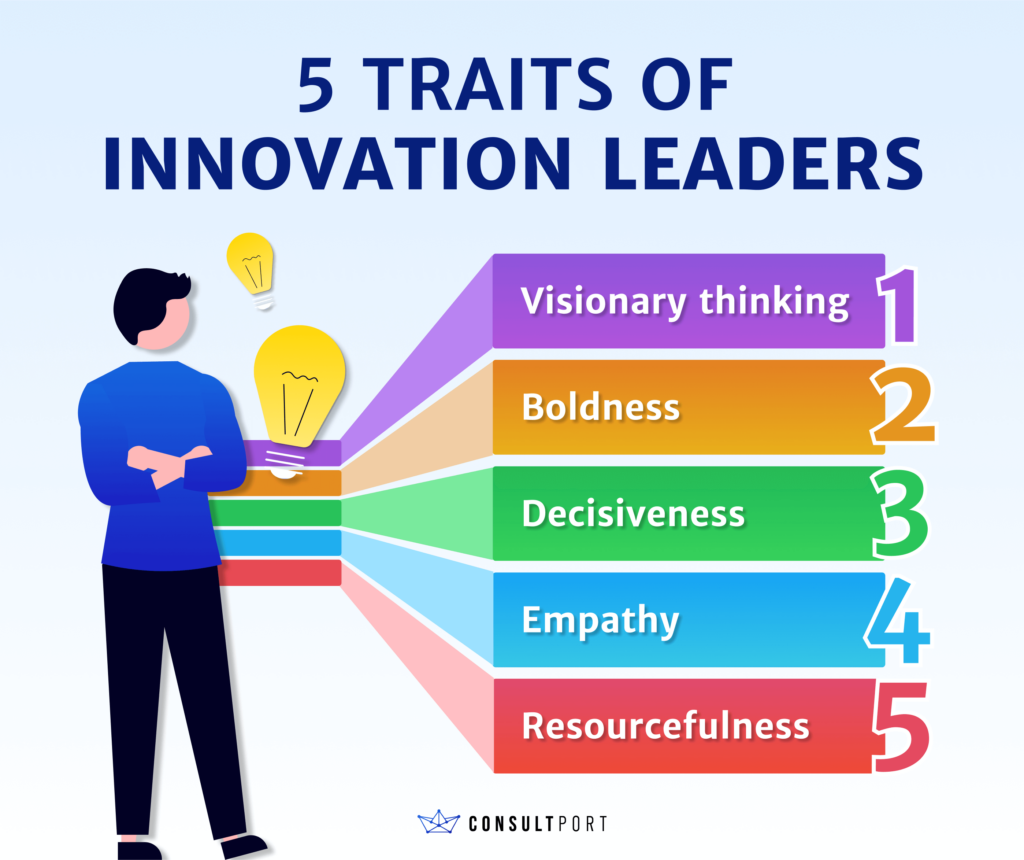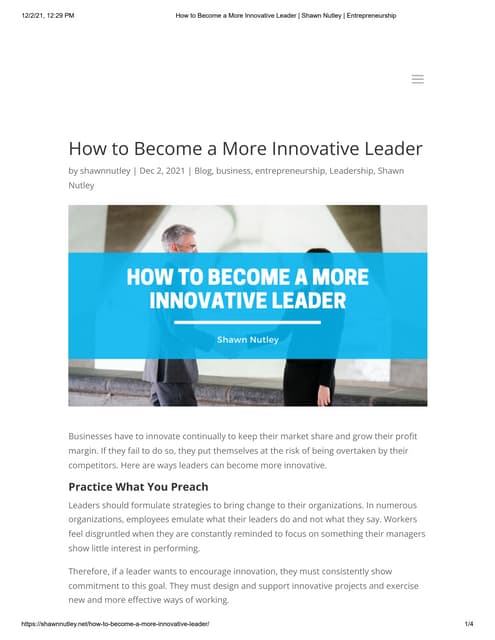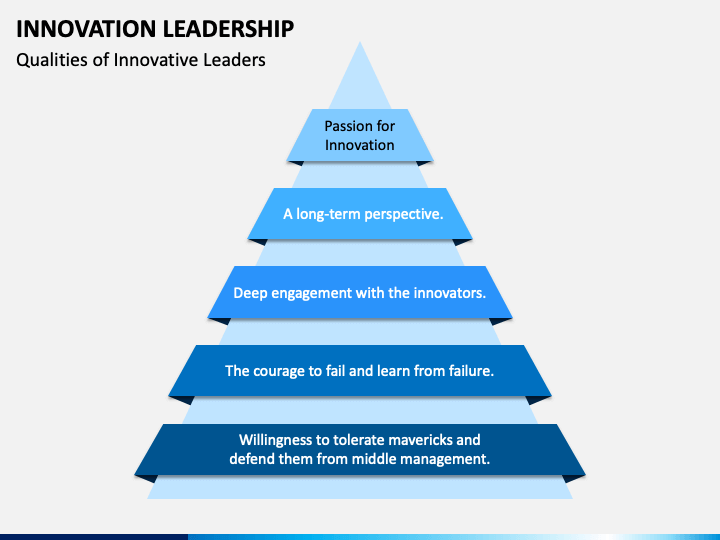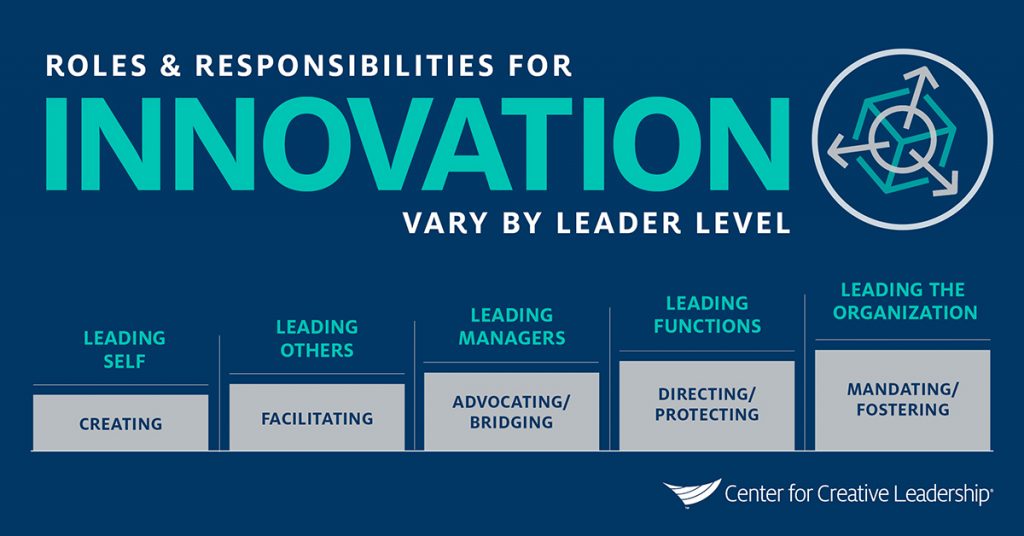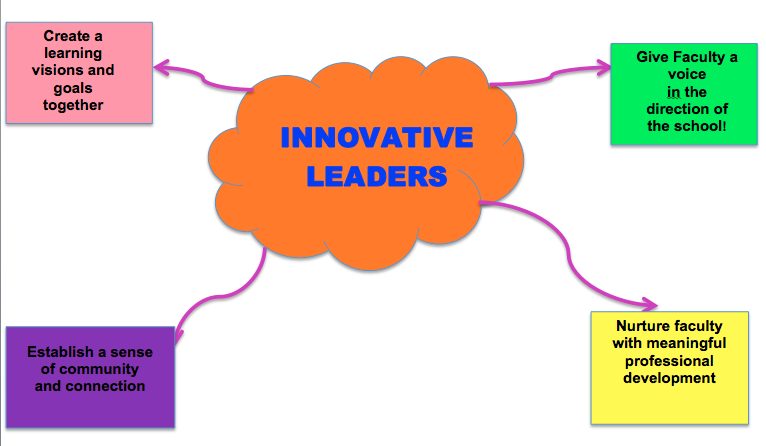How To Become An Innovative Leader

In today's rapidly evolving world, the demand for innovative leadership has never been greater. But innovation isn't just about having good ideas; it's about cultivating a mindset and skillset that fosters creativity, collaboration, and calculated risk-taking.
This article explores the key attributes and strategies individuals can adopt to become effective and innovative leaders, drawing on insights from leadership experts and organizational studies. Ultimately, it is about understanding that innovative leadership is not an innate quality but a learned and practiced discipline.
Cultivating a Growth Mindset
A growth mindset, championed by psychologist Carol Dweck, is fundamental. This belief that abilities can be developed through dedication and hard work allows leaders to embrace challenges and view failures as learning opportunities, rather than fixed limitations.
Leaders with a growth mindset are more likely to encourage experimentation and innovation within their teams. They foster an environment where mistakes are seen as stepping stones to success.
Embracing Continuous Learning
Innovative leaders are lifelong learners, constantly seeking new knowledge and perspectives. This involves staying abreast of industry trends, technological advancements, and emerging best practices.
Actively participating in workshops, conferences, and online courses, as well as reading widely and engaging with diverse thought leaders, can significantly enhance one's understanding of the evolving landscape. This broad knowledge base provides the fuel for generating novel solutions and approaches.
Fostering Collaboration and Diversity
Innovation thrives in collaborative environments where diverse perspectives are valued. Leaders must create a culture of inclusivity, where individuals from different backgrounds, experiences, and skill sets feel empowered to contribute their ideas.
Active listening and open communication are critical components of this. Leaders should actively solicit feedback, encourage healthy debate, and facilitate cross-functional collaboration to spark creativity and problem-solving.
Empowering Teams and Delegating Effectively
Innovative leaders empower their teams by providing autonomy and decision-making authority. This involves trusting team members to take ownership of their work and encouraging them to experiment with new approaches.
Effective delegation is key, allowing leaders to focus on strategic priorities while empowering their teams to develop their skills and contribute meaningfully. Delegating effectively also frees the leader to focus on the bigger picture.
Taking Calculated Risks
Innovation inherently involves risk-taking. However, innovative leaders don't take risks blindly; they make calculated decisions based on thorough analysis and understanding of potential outcomes.
This involves conducting pilot programs, testing new ideas on a small scale, and being willing to pivot when necessary. The ability to learn from failures and adapt quickly is crucial for navigating the uncertainties inherent in innovation.
Leading with Empathy and Emotional Intelligence
Emotional intelligence, the ability to understand and manage one's own emotions and those of others, is a critical leadership attribute. Empathic leaders are better equipped to connect with their teams, understand their needs, and build strong relationships.
This fosters a sense of trust and psychological safety, which is essential for encouraging open communication and creative risk-taking. Empathy builds trust.
Measuring and Celebrating Successes
To sustain a culture of innovation, it's important to measure and celebrate successes. This provides positive reinforcement and motivates teams to continue pushing boundaries.
Setting clear metrics for innovation, tracking progress, and recognizing individuals and teams for their contributions can help to foster a sense of accomplishment and purpose. Acknowledging achievements, both big and small, reinforces the value of innovation within the organization.
The Impact on Society
Ultimately, cultivating innovative leadership is not just beneficial for organizations; it's essential for driving positive change in society. By embracing these principles, individuals can become catalysts for progress, solving complex problems and creating a better future for all.
The ripple effect of one innovative leader can be far-reaching, inspiring others to think differently, challenge the status quo, and create a more innovative and sustainable world.




